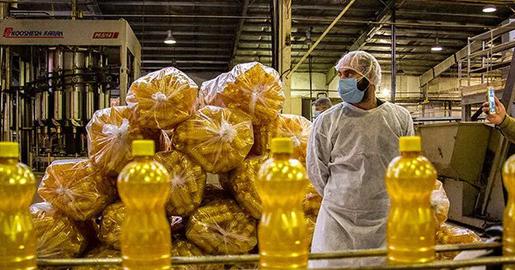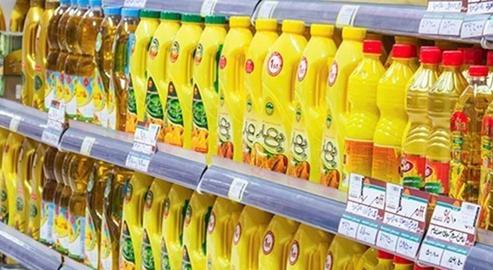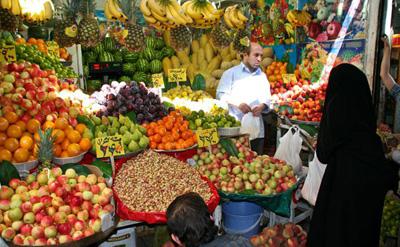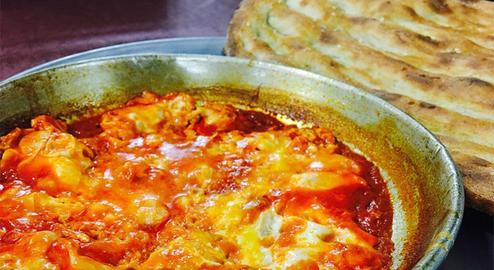Supermarkets in the Iranian capital are receiving less than half the supply of cooking oil they stocked before Russia's invasion of Ukraine, the president of Tehran Supermarkets Union has said.
Iran is 90 percent dependent on imported oil for cooking and even before the war began in late February, oil prices had been steadily increasing ever since the reimposition of US sanctions.
The prices jumped considerably after February 23. Russia formerly supplied 37 percent of Iran’s sunflower seed and sunflower oil and together with Ukraine was one of the world's biggest exporters of both products.
Davoud Fakouri, the president of Tehran Supermarkets Union, told Khabar Online this week: "In recent months the prices haven't gone up overmuch but, with the halt in oilseed imports, production of cooking oil has fallen precipitously. Cooking distribution companies have essentially rationed it, compared to a few months earlier, we're receiving 60 percent less.”
He went on: “Because of the low supply, some supermarkets in Tehran have no cooking oil at all and some others have barely any to sell. This will create more chaos and hurt people in the coming days."
Fakouri also reported a number of lesser-known problems apparently emerging in Iran’s food market. “The supply of macaroni has decreased considerably,” he said. “Well-known brands are supplying supermarkets with just one carton each. This troublesome shortage makes it almost impossible for people to buy macaroni.”
The price of flour, Fakouri said, had gone up by 57 percent. He accused pasta-making companies of hoarding their own products just so they could sell them at higher prices in future.
In March, shortly after the invasion got under way, Iran’s Feed and Grain Importers Union warned that the conflict would “cause problems” for livestock feed imports to Iran. Supply chain blockages brought about by fresh sanctions and airspace bans, it added, could lead to delayed deliveries.
A member of the union called on the government to diversify by increasing imports from countries such as Argentina, Canada and Brazil. Ukraine and Russia also account for more than a quarter of global wheat exports and nearly a fifth of corn.
Despite the clear risk to Iranian food security, the government of the Islamic Republic has outwardly supported Putin’s invasion of Ukraine.
visit the accountability section
In this section of Iran Wire, you can contact the officials and launch your campaign for various problems





















comments